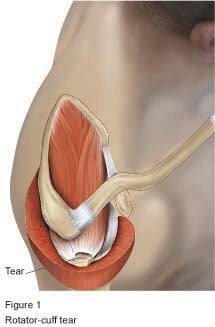The Procedure
What are the Benefits of Rotator Cuff Repair?
You should get less pain and be able to use your shoulder more easily.
Are There Any Alternatives to Rotator Cuff Repair?
Most people with impingement or a small tear can get back good function in their shoulder by changing their activities, and with the help of exercises and physiotherapy.
Simple painkillers such as paracetamol and anti-inflammatory painkillers such as ibuprofen can also help.
A steroid and local-anaesthetic injection into your shoulder can sometimes reduce pain.
If you have a large tear, it is likely that surgery is your only option to get back some strength in your shoulder.
What Does Rotator Cuff Repair Involve?
The operation is usually performed under a general anaesthetic but various anaesthetic techniques are possible. The operation usually takes 45 minutes to an hour.
Impingement is usually treated by an arthroscopy (keyhole surgery). Your surgeon will use instruments to remove any thickened tissue, release any tight tissue and to shave off some bone.
Your surgeon may also be able to repair rotator-cuff tears using keyhole surgery. However, they may need to use open surgery. They will use stitches that anchor into the bone.
What Complications Can Happen?
General Complications
- Pain
- Bleeding
- Infection of the surgical site (wound)
- Unsightly scarring
Specific Complications
- Bleeding into your shoulder
- Restricted shoulder movement
- Infection in your shoulder
- Blood clot
- Severe pain, stiffness and loss of use of your arm and hand (complex regional pain syndrome)
- Damage to nerves
- The rotator cuff tearing again or the tear failing to heal
















